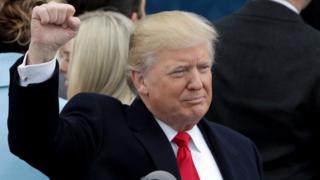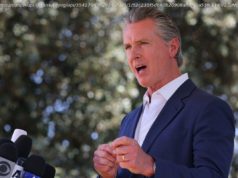 The rarefied environs of a Davos cocktail party may not, at first, seem like the ideal place to teach people to understand those with whom they disagree.
The rarefied environs of a Davos cocktail party may not, at first, seem like the ideal place to teach people to understand those with whom they disagree.
But Peter Salovey thinks there is no better place to preach the gospel of empathy.
As president of Yale, he has direct access to the university’s distinguished alumni. Some, such as Blackstone’s Stephen Schwarzman and Chinese billionaire Zhang Lei, are the very epitome of the so-called global elites against whom there has been somewhat of a populist backlash in the past year.
Prof Salovey comes to the World Economic Forum with a message.
He says the business leaders in Davos would do well to understand the ordinary men and women behind populist uprisings, such as the one in his own country, which culminated on Friday with the inauguration as President of such an unlikely candidate as Donald Trump.
« We live in a complex world, a world where our fellow citizens are telling us that they feel left out, » says the convivial psychology professor.
Business leaders prepare to temper Trump
Davos coverage in full
In such times, he adds, reaching across cultural, political and economic divides is more important than ever, and Prof Salovey thinks he knows how to help Davos delegates do just that.
« How does one learn how to listen, how does one learn how to think critically, how does one learn how to communicate? And how does one learn to develop emotional intelligence, the ability to empathise with another person? »
The answer, he says, lies in education – in particular, the humanities.
To that end, the function room at the Belvedere Hotel in which Yale’s annual reception is held features some rather novel exhibits, at least for a forum mostly dedicated to dealing with the immediate present.
In conjunction with the Smithsonian, delegates can explore some of the world’s most endangered languages by watching interactive videos of their last remaining native speakers, or flick through an archive of pictures displaying ordinary Americans at work in factories and farms – taken for propaganda purposes at the behest of Franklin D Roosevelt, in order to highlight the success of his New Deal.
Perusing such artefacts, says Prof Salovey, can help the gathered Davos crowd grapple with complex problems such us: « What are the fundamental problems that humans have grappled with for millennia? What are ways in which we share a common humanity? »
He says people do feel that they have worked hard and paid their dues, and yet still they feel downwardly mobile. « That’s not the American dream, » he adds.
One person who understands the American dream all too well is Lonnie Bunch, the founding director of the Smithsonian’s National Museum of African American History and Culture (NMAAHC), which was opened to great fanfare by President Obama in Washington just a few months ago.
Since then, nearly a million people have wandered through its doors, and encountered one of America’s darkest moments, in slavery, and one of its greatest strengths, in the huge contributions of African Americans to the country’s cultural makeup.
« I think it is crucially important in the times we are living in to be able to give people a sense of hope and possibility, but to also help them understand that despite how bad you may think things are, they were once worse, and people struggled to improve, across racial lines, » says Mr Bunch.
Addressing the assembled businessmen and women, he says: « You can’t be a good businessman without understanding the societal issues that have shaped the moment you are in.
« Businessmen always forecast what they think is the next trend. Part of that comes from understanding the past.
« What we want is not only for people to understand the past but also to bring those skills of the humanities – critical thinking, nuance, ambiguity – to basically be able to be nimble, to wrestle with a variety of issues, not just have a single point of view. »
However, Mr Bunch stresses, « change doesn’t happen without struggle, without sacrifice. »
Alluding to the incoming US administration, the historian says that it is « incumbent upon all who enter the museum to be an activist, to help make America better ».
For his part, Prof Salovey is committed to defending the values of educational institutions such as Yale, not just as bastions of free expression, but also as havens for diversity.
« We believe that the most stimulating educational environment that we could create comes when we have a wonderful mix of the world on our campus, » he says, in a thinly veiled broadside at Donald Trump’s campaign rhetoric.
« We have policies on campus who support students called ‘Dreamers’, who came to the US as children, but perhaps their parents were not documented.
« We support DACA, the act that gives a status to people whose immigration status may be ambiguous, or undocumented. »
Prof Salovey cites his own family heritage – his grandparents, he says, were uneducated immigrants and education lifted their children out of poverty.
This, he says, is the American value he most wants to protect.
« We want to educate the world, » he emphasises.
« I’m not willing to give up on that, and I will advocate as vigorously as I know how, to continue that tradition in all of our institutions of higher learning. «






